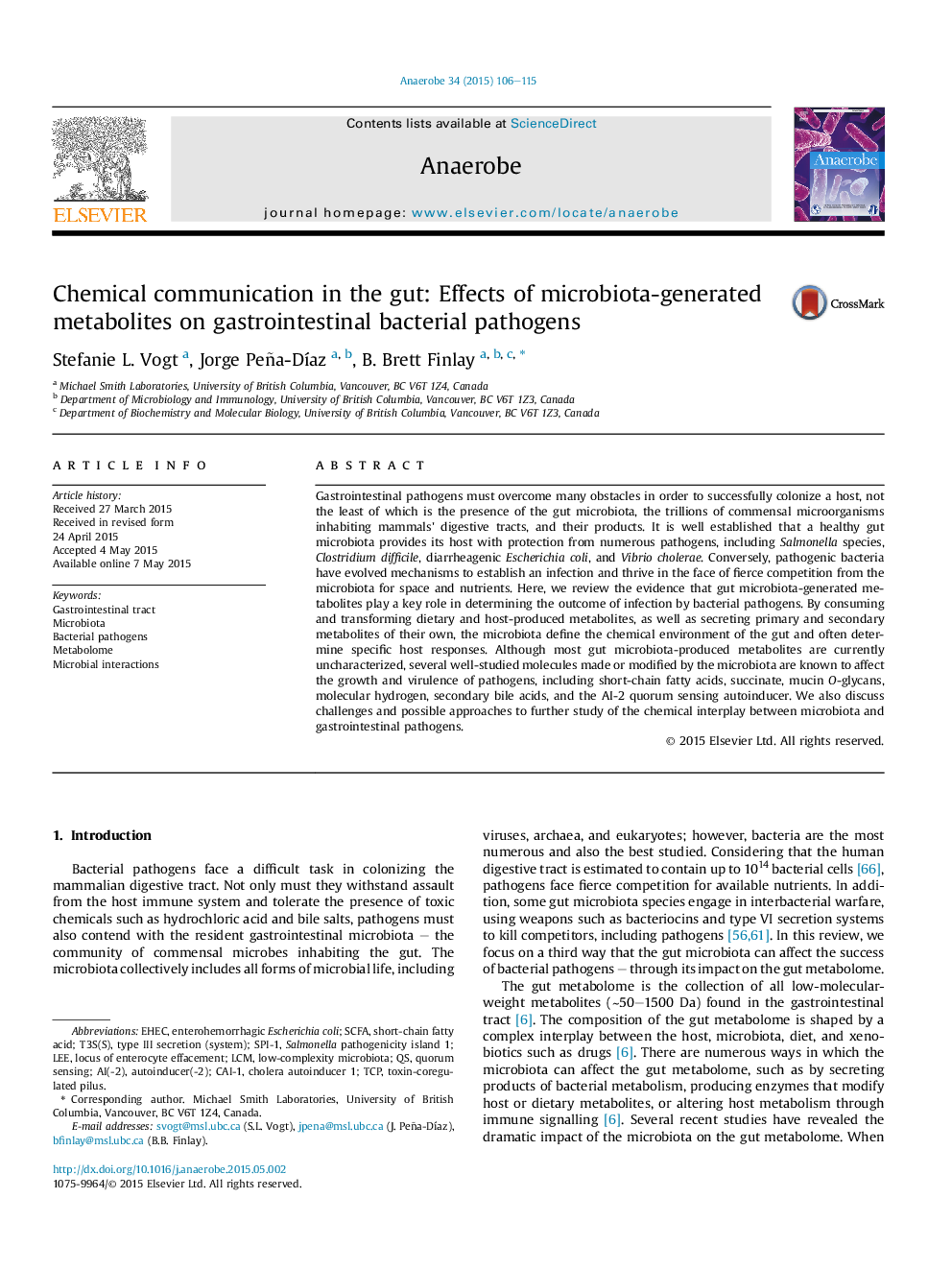| کد مقاله | کد نشریه | سال انتشار | مقاله انگلیسی | نسخه تمام متن |
|---|---|---|---|---|
| 3394956 | 1592829 | 2015 | 10 صفحه PDF | دانلود رایگان |
• Gut microbiota activities have broad effects on the intestinal metabolome.
• Many microbiota metabolites influence the growth or virulence of gut pathogens.
• Metabolites promoting pathogenesis include short-chain fatty acids and mucin sugars.
• Metabolites inhibiting pathogenesis include secondary bile acids and autoinducer-2.
• Uncharacterized gut microbiota metabolites have immense anti-pathogen potential.
Gastrointestinal pathogens must overcome many obstacles in order to successfully colonize a host, not the least of which is the presence of the gut microbiota, the trillions of commensal microorganisms inhabiting mammals' digestive tracts, and their products. It is well established that a healthy gut microbiota provides its host with protection from numerous pathogens, including Salmonella species, Clostridium difficile, diarrheagenic Escherichia coli, and Vibrio cholerae. Conversely, pathogenic bacteria have evolved mechanisms to establish an infection and thrive in the face of fierce competition from the microbiota for space and nutrients. Here, we review the evidence that gut microbiota-generated metabolites play a key role in determining the outcome of infection by bacterial pathogens. By consuming and transforming dietary and host-produced metabolites, as well as secreting primary and secondary metabolites of their own, the microbiota define the chemical environment of the gut and often determine specific host responses. Although most gut microbiota-produced metabolites are currently uncharacterized, several well-studied molecules made or modified by the microbiota are known to affect the growth and virulence of pathogens, including short-chain fatty acids, succinate, mucin O-glycans, molecular hydrogen, secondary bile acids, and the AI-2 quorum sensing autoinducer. We also discuss challenges and possible approaches to further study of the chemical interplay between microbiota and gastrointestinal pathogens.
Journal: Anaerobe - Volume 34, August 2015, Pages 106–115
